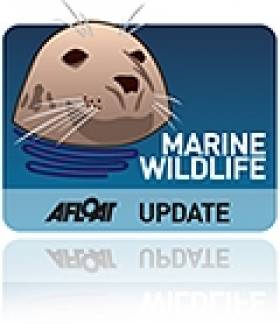Displaying items by tag: starry smoothhound
Study Shines Spotlight on Starry Smooth-hounds
New research from University College Dublin on marine animals may bring closer attention to one of Ireland's least well known species of shark.
Dr Edward Farrell of UCD's School of Biology & Environmental Science spent the last four years of his PhD project studying the starry smooth-hound, a regular in the shallow waters of Ireland's east coast that can grow to over a meter in length.
"It's amazing how little was known about this species," said Farrell. "Until recently we weren't even sure what species we were dealing with, but we developed a genetic method which allowed us to confirm that it is the starry smooth-hound which occurs in Irish waters and not the related common smooth-hound."
Starry smooth-hounds are not valuable as a commercial species in Ireland, but are growing in popularity on the continent. Once abundant in the Mediterranean, their numbers have dwindled in recent years.
The sharks were previously considered a fast-growing species, meaning they were not a conservation concern. However Farrell's research has revealed that those in Irish waters actually grow twice as slowly as once thought, and only reproduce every two years rather than annually.
"There are currently no management measures for this species in European waters mainly due to the lack of biological information," said Farrell. "So our main aim was to gather the necessary data.
"Hopefully this can be used now to ensure their sustainability and prevent a repeat of the overexploitation seen in Mediterranean waters."





























































